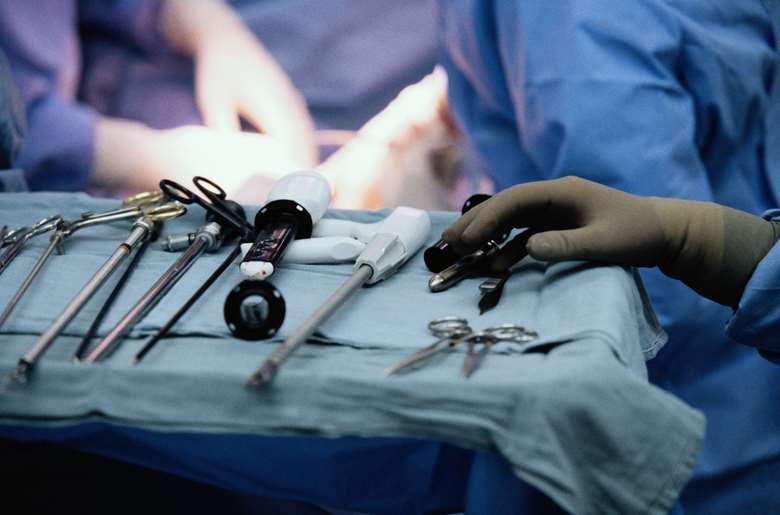Social care in the UK must widen its outlook to be more resourceful
Chris Hanvey
Tuesday, May 28, 2013
Services in the UK have plenty to learn from poorer countries, argues Chris Hanvey

Not far out of Nairobi, the roads deteriorate. Asphalt quickly gives way to dusty tracks; huge potholes need to be negotiated and everywhere is the noise and bustle of adults and children. No landscape is without people, whether they are selling produce by the roadside, carrying huge loads on heads or rickety bicycles, or clutching the hands of small, wide-eyed children. Large stretches of road are interspersed with small villages and townships, and it is in these that district hospitals and rudimentary health centres are located.
On a trip to Kenya and Uganda in East Africa, I visited some of the hospitals where the Royal College of Paediatrics and Child Health has a number of exchange schemes, financed by the UK government’s development funds. Paediatricians from Uganda, Rwanda and Kenya come to work in NHS hospitals and UK paediatricians visit the three countries to work and learn there. From a UK perspective, it is supplemented by young doctors volunteering through VSO to work abroad and by retired consultants who choose to work in African hospitals.
Conditions in some of the hospitals need to be seen to be believed. Sometimes hundreds of people wait, all day in the sun, to be triaged in reception areas and very few experience the luxury of seeing doctors. Instead, they are interviewed by clinical assistants who, where necessary, refer to the few hard-pressed doctors. Most paediatric wards are packed with beds, many without mattresses. Often children have to share beds and their mothers sleep on the floor when available, next to their bedsides. Equipment is at a premium and many children die, not through life-threatening conditions, but because basic medication or supplies are just not available. And so, a blood transfusion cannot be given because there was a power cut the previous morning and the blood stored in the refrigerators can no longer be used.
But what is the relevance of all of this to children’s services in the UK? First, it is a slightly bittersweet truth that young doctors learn as much from the experience as they are able to contribute. In particular, they learn to be both creative and inventive when scarce resources are not available. Old unworking incubators, for instance, can be given a new lease of life if they are connected to a light bulb and lined with a napkin soaked in water. The bulb is just warm enough to heat the water and, as it rises, it keeps the incubator and baby warm. A team of paramedics from Basingstoke, working in a Ugandan hospital, spoke of the way they had simplified UK techniques and would be far less wasteful in their use of equipment on their return. How useful these skills would be to social care staff in the UK, forced to look creatively and originally at new ways of working when resources are so limited.
For those of us all too ready to criticise the reduction in resources in the UK, it is salutary both to experience what can still be done when next to nothing is available and to learn to find creative ways around problems that are not resource intensive.
The second value of such exchanges for social care is in the lessons about prevention. In one or two places, hospital grounds have been turned into cottage gardens, to help the carers of malnourished children learn to grow vegetables and fruit – sometimes in little more than an old plastic bag. Such projects also provide scope for experimenting with new produce that might easily be grown with limited resources.
This approach is gradually being coupled with the kind of preventative, epidemiological work, which will help to analyse from which part of a district malnourished children are predominantly coming. But when the infrastructure is not there to focus help, new ways have to be developed to offer targeted services, which are culturally sensitive and, again with scarce resources, realistic.
When you are dealing with the burden of disease and very sick children who might die from a predictable illness, other things take on a different level of importance. So in parts of Africa, the notion of a progressive, supportive social care system is a distant ideal. But that does not mean we should be complacent.
Just as junior doctors absorb lessons from low-resource settings that in the technically advanced, industrialised world have become lost, there is huge scope for child care specialists to embark on similar exchanges and for us to build links that would mutually enhance all countries. This is not a one-way journey of imparting knowledge and skills, but in the spirit of humbly acknowledging we have much to learn and can support each other’s practice.
We have little tradition in children’s social care of building sustained relationships with other countries – at times social care in the UK can be insular and inward looking. At best, we look to other rich Western countries, like Sweden or Germany. But in an increasingly global world, it is time to look further afield both to offer support and to help.
Dr Chris Hanvey is chief executive of the Royal College of Paediatrics and Child Health




